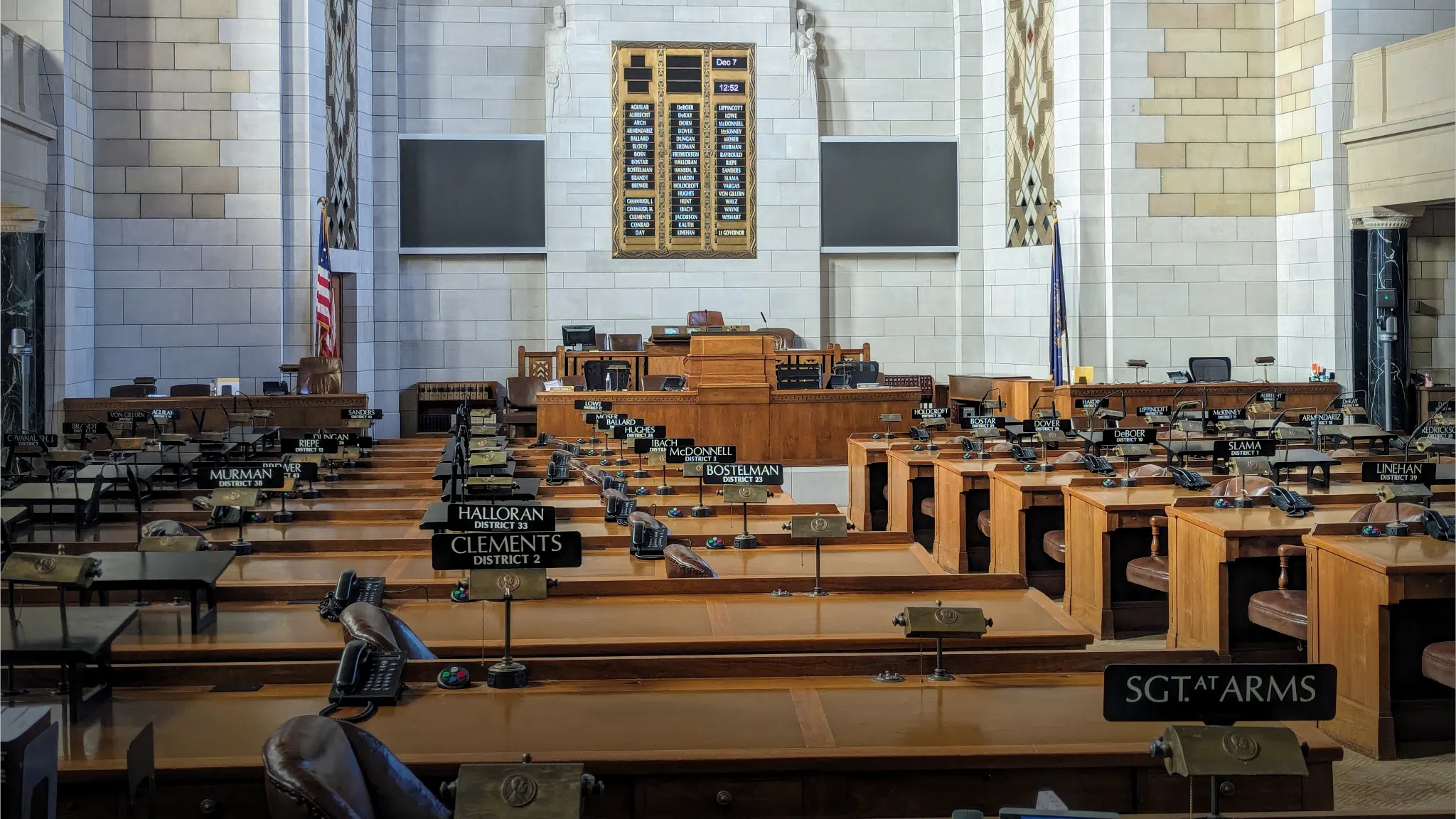A bill increasing access to prenatal care for mothers advanced with ease Wednesday in the Nebraska Legislature.
State Senators voted unanimously (45-0) to advance LB 857, which would establish Nebraska’s “Prenatal Plus Program.” The program would expand prenatal health services for expecting Nebraska mothers and babies who receive Medicaid and are at a high risk of preterm, low birthweight birth, and other adverse health outcomes. The bill would expand reimbursable services to nutrition services/coaching, targeted case management, and include mental health support, substance abuse and tobacco cessation, and more.
This bill was introduced by Sen. George Dungan of Lincoln. He said on the floor, he devised this as his personal priority bill following the contentious session of 2023. Dungan wanted to accomplish two goals with his priority bill: Something that would have a tangible-substantive impact on everyday Nebraskans, and something that could draw bipartisan support.
“I started doing research and figuring out what issue would fit that bill. One of the things that I almost immediately landed on—one thing that we could all agree on—is we need more healthy moms and more healthy babies,” said Dungan.
Data shows in 2022, 1 in 9 Nebraska babies were born preterm, and 1 in 13 Nebraska babies were born with a low birthweight. Preterm and low birthweights are the second leading cause of infant deaths in the United States with infant mortality rates 25 times greater than normal birthweights. Beyond infancy, babies born preterm or low birthweight are more susceptible to experience effects into adulthood such as vision, respiratory, gastrointestinal, immunologic, motor and cognitive complications.
The proposed program for Nebraska takes inspiration from similar programs around the county, Dungan said particularly Colorado and Florida.
“We’re not just talking about prenatal vitamins. We’re talking about providing services like mental health care, substance use disorder treatment, ensuring they have nutrition counseling, and specifically targeted case management to make sure that moms have someone who can tell them what other services are available,” the Lincoln senator said on the floor, citing studies indicating Colorado’s Prenatal Plus program was widely utilized and beneficial for expecting Coloradans, and showed an almost immediate increase in birthweight for participants.
A Health and Human Services Committee amendment, accepted 45-0, specified what Medicaid patients qualify for reimbursement and clarifies the bill’s intention to address prenatal—not postpartum—concerns.
Appealing to austerity-focused lawmakers, Dungan said investments into these programs resulted in Medicaid cost savings, with every dollar invested saving an average of $2.48. After certain tweaks were made to the bill’s fiscal note, Dungan says the State of Nebraska would spend $1.6 million in implementing the program, and a utilization of the Managed Care Organization (MCO) excess profits cash fund would reduce the program’s costs from the general fund to zero.
“I want to say that again,” Dungan reiterated to senators, “By virtue of the fact that we’ve narrowed down exactly who it’s intended to work with, and the money coming from the excess profit cash fund, it has a zero dollar general fund impact.”
During debate, Senator Rob Clements pointed out that the program effectively does pull from the general fund, as excess profits from the MCO cash fund are absorbed into the general fund if they go unspent. Clements also introduced a termination date to the program, also called a sunset date, for June 30th, 2028. He said while introducing his floor amendment that sometimes new programs “don’t work” as intended and if it were successful, it could be reinstated before that date.
Senator Jana Hughes was opposed to the floor amendment, saying she felt that date was “too soon” to determine the programs efficacy. The sunset date was ultimately amended to the bill, with less consensus, on a 25-15 vote (with 7 not voting).
Dungan said he appreciated the amendment’s intention, but agreed with Hughes, saying these programs take time to ramp up in usage. He also citing a built in obligation to provide annual reports on the program.
LB 857 now sits on select file, and must withstand another two rounds of technical debate before being accepted into law.







